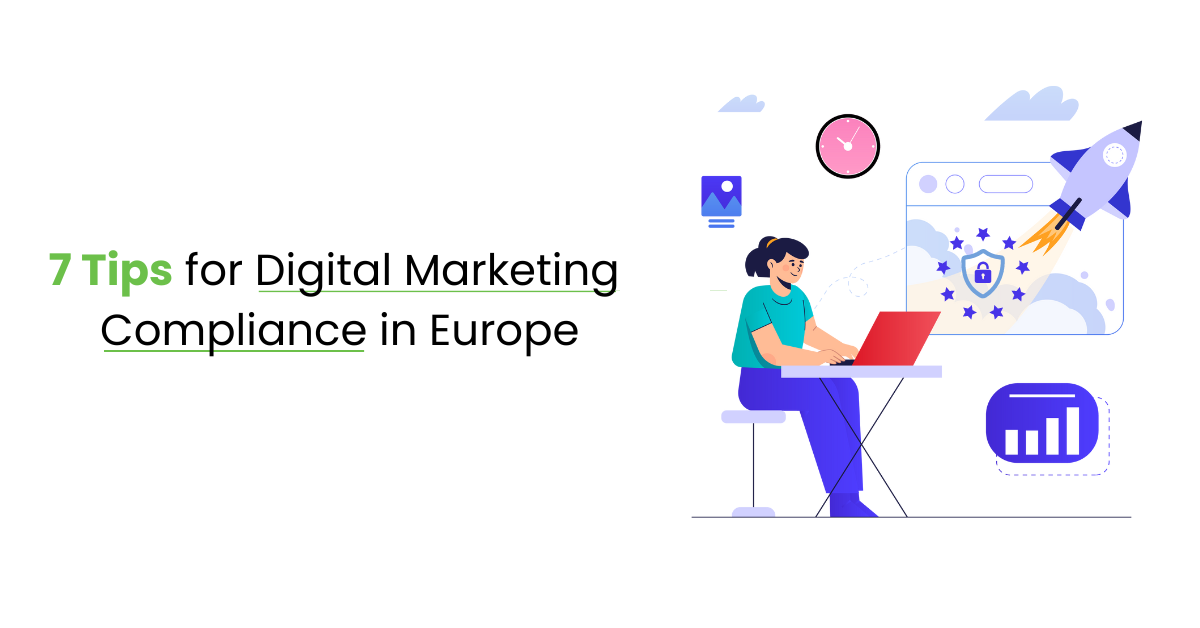Digital marketing has evolved, becoming vital for any organisation to showcase its products and services quickly and reliably. As digital interaction has become a part of daily life, data protection is very difficult nowadays. Digital marketing compliance is very important in order to save your business from penalties.
GDPR was introduced by the European Union in 2018, it sets the new criteria for data protection and security. It makes every organisation responsible for the data they are collecting and using.
In this blog, we will learn some tips to help us comply with digital marketing.
What is Digital Marketing Compliance? And why it is important?
In simple words, if your company complies with industry norms, laws, and moral principles in all of its marketing activities, this is known as digital marketing compliance. It guarantees companies uphold
-
- Transparency
-
- Integrity
-
- Fairness
while safeguarding customers’ rights and privacy.
Why is digital marketing compliance important?
-
- Legal Protection
-
- Consumer Trust
-
- Credibility Management
-
- Competitive Advantage
-
- Operational Efficiency
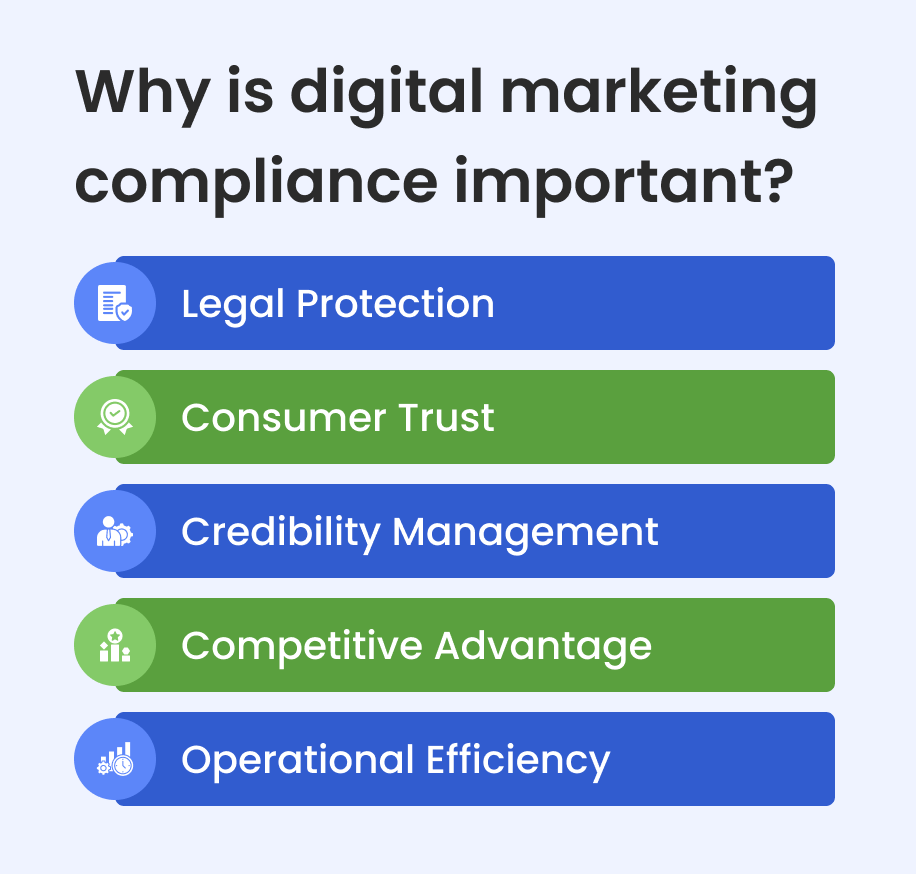
These are the factors that determine the importance of digital marketing compliance.
Legal Protection: Avoid legal penalties and fines, preventing financial and reputational damage.
Consumer Trust: Build user’s trust by protecting data and ensuring honest marketing.
Credibility Management: Maintain a positive brand image by preventing data breaches and misleading.
Competitive Advantage: Stand out in the market through ethical marketing and data protection.
Operational Efficiency: Simplify marketing processes, reducing the risk of errors and misconduct.
Building Blocks of Marketing Compliance
-
- Regulatory Compliance
-
- Advertisement Compliance
-
- Brand Monitoring
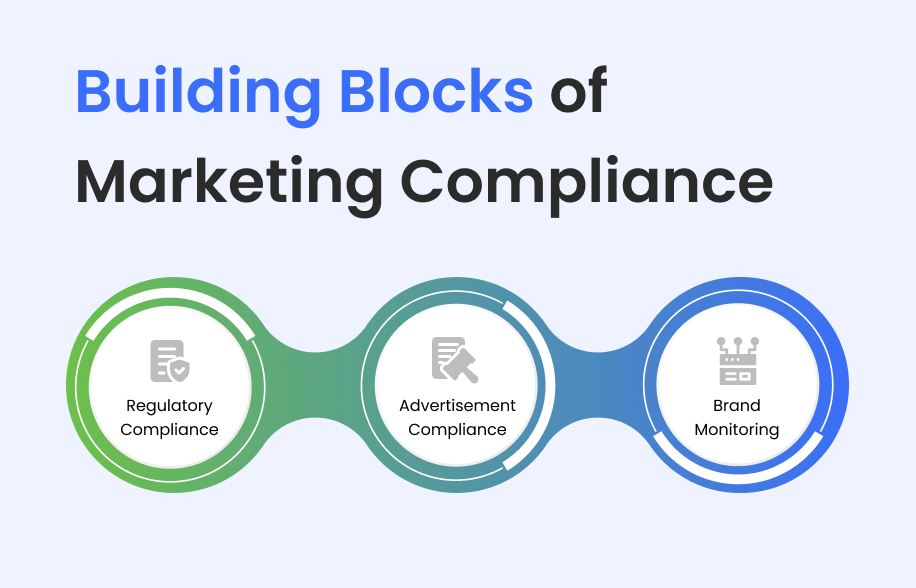
We think about marketing compliance, first thing in our comes to strict legal requirements. However, it also includes compliance related to brand usage and standard-based advertising rules.
Regulatory Compliance
Regulatory compliance means adhering to the laws and regulations governing marketing practices. These laws are distinguished by country, media outlet, and sector of the economy. They usually address issues like consumer rights, disclosure, data protection, fair advertising, and anti-spam tactics.
Transparency and disclosure are essential components of marketing compliance. For example:
-
- Users must know when they are interacting with marketing material.
-
- Saves consumers from false claims, bait-and-switch tactics, and misleading practices.
-
- Laws like CAN-SPAM protect consumers from unsolicited marketing messages.
-
- Compliance is an ethical obligation, but businesses cannot stand without trust.
AdvertisementCompliance
Adhering to moral and legal requirements in advertising is the main goal of advertising compliance. It guarantees that all advertising operations follow pertinent laws, rules, and guidelines controlling content, location, presentation, disclosures, and claims regarding goods or services.
You may make sure that your commercials are honest, not deceptive, and do not hurt customers by following these rules. Legal action and reputational harm to your brand are possible outcomes of non-compliance.
Marketers must not only be familiar with these standards and rules but also adopt a proactive strategy to ensure they are aware of any modifications.
Brand Monitoring
Brand monitoring is vital to marketing compliance, ensuring a company’s brand, image, products, and disclosures are accurately and consistently represented across all marketing materials and channels.
It helps organisations identify and address any misuse of their brand across the web and social media by known partners or unknown entities, preventing potential compliance issues and regulatory scrutiny.
7 Tips for Digital Marketing Compliance
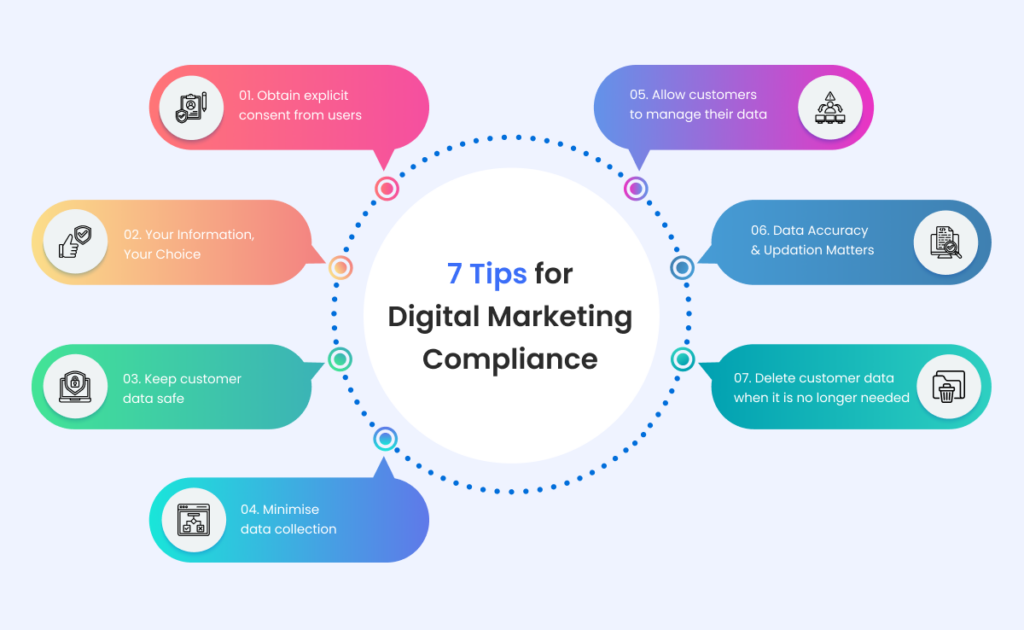
Obtain explicit consent from users
Getting explicit consent involves clear, affirmative customer agreement, which ensures that consent is freely provided, specified, and informed. Customers should acknowledge why their data is being gathered and how it will be used. They should be able to withdraw consent if they change their minds.
To make this process easier, organisations can use clear and concise consent forms, provide simple withdrawal options, and offer incentives like as discounts for obtaining consent.
A clear consent policy is necessary for GDPR compliance and shows a company’s respect for customer privacy and commitment to data security. 73% of consumers are willing to share more personal information with companies that are transparent about how they use it.
Your Information, Your Choice
48% of users stated they would stop engaging with a company if they felt their data was not being used responsibly. Most data privacy laws are based on three important data management principles, all of which marketers must understand:
-
- Data Permission: It involves getting clear and specific consent, with informed, & unambiguous manner, backed up by a clear affirmative action from the user.
- Data Access: This concept is often referred to as ‘right to be forgotten,’ allows individuals the right to have outdated or inaccurate personal data removed.
- Data Focus: This principle emphasises collecting only the data you truly need and using it solely for the appropriate purposes.
Among these, “Data Focus” is frequently overlooked, yet it is a critical component of marketing compliance. As a marketer, you should carefully consider whether you absolutely require all of the data you collect or if your marketing efforts might be just as effective with less.
Keep customer data safe
One of the key objectives of GDPR is to prevent consumer data from being breached, hacked, or accessed without authorisation. This means that organisations must take steps to protect client data, both online and offline.
The average cost of a data breach in 2023 was $4.45 million, highlighting the financial risk of not safeguarding customer data.
There are numerous security precautions you can take to protect customer data. You can choose to encrypt data or use secure servers. You can additionally implement strict access control mechanisms.
Using these techniques will let consumers know that you respect data security and their private information is safe under your company.
Minimise data collection
The GDPR allows organisations to collect only the data necessary for the intended purpose. This means you shouldn’t gather data solely because you can! Instead, only get the information that is actually required.
Companies that practice data minimisation have 25% fewer data breaches on average compared to those that do not
This data minimisation technique has two advantages: it will help you comply with GDPR while also lowering the danger of data breaches. After all, the less data you have, the less you stand to lose in the event of a security incident.
Allow customers to manage their data
GDPR gives customers the right to access, update, and delete their data anytime. It means that your company must allow customers to readily see, modify, or erase their data from your systems. 82% of consumers want more control over the personal data companies collect.
This strategy reflects your commitment to transparency and respect for your consumers’ data privacy rights. It will also help you create trust with your consumers, which is critical for any profitable business!
Data Accuracy & Updation Matters
A major objective of GDPR is to guarantee the accuracy and currency of customer data. Companies must ensure data accuracy at the point of collection and maintain it over time.
72% of businesses that prioritise data accuracy experience improved marketing campaign performance.
To achieve this, implement data verification strategies within your processes and give customers easy access to update their information. This demonstrates your commitment to accurate data management, which is vital for both GDPR compliance and building consumer trust.
Delete customer data when it is no longer needed
GDPR demands businesses to delete customer data when it is no longer necessary. 80% of companies that do not regularly delete unnecessary data are at a higher risk of non-compliance with GDPR.
This mandates implementing a process for removing outdated or irrelevant data. This helps you stay compliant with regulations and reduce the risk of data breaches.
Additionally, this practice allows you to better identify your active customer base and adjust your marketing strategies to align with current customer demographics.
How Seers Can Help with Digital Marketing Compliance?
Seers will ensure that your digital marketing efforts stay aligned with regulatory requirements. Seers, a leading solution in the market, offers a comprehensive suite of features to help businesses maintain compliance easily. We help many companies comply and save their revenue from penalties and legal fines.
Following are the points where Seers is helping marketers
Google Consent Mode V2
Seers supports Google Consent Mode V2, which manages user consent but also integrates with Google Ads and ensures proper data maintenance. This feature helps you respect user preferences while optimising ad performance and data tracking.
Businesses using Google Consent Mode V2 have witnessed a 12% increase in conversion rates.
IAB TCF Compliance
Seers is fully compliant with the IAB Transparency and Consent Framework (TCF), providing a standardised way to manage and communicate user consent across digital advertising platforms.
Over 80% of European advertisers and publishers have adopted the IAB Transparency and Consent Framework (TCF). This ensures your marketing activities align with industry standards and regulations
Child Privacy Protection
A specific feature is dedicated to child privacy, Seers ensures that your marketing practices comply with strict regulations around collecting and processing data from minors. You can add the minimum age to your banner to show the age group you added. This is critical for companies targeting or indirectly engaging younger audiences.
Under regulations like GDPR, companies that prioritise child privacy protection can avoid fines of up to $20 million or 4% of annual global turnover.
Marketing Email Management
Seers simplifies the management of marketing emails by automatically removing users who wish not to receive them and informing recipients whenever data is collected for marketing purposes. This transparency builds trust and ensures compliance with data protection laws.
Following are the email marketing statistics in Europe in 2024
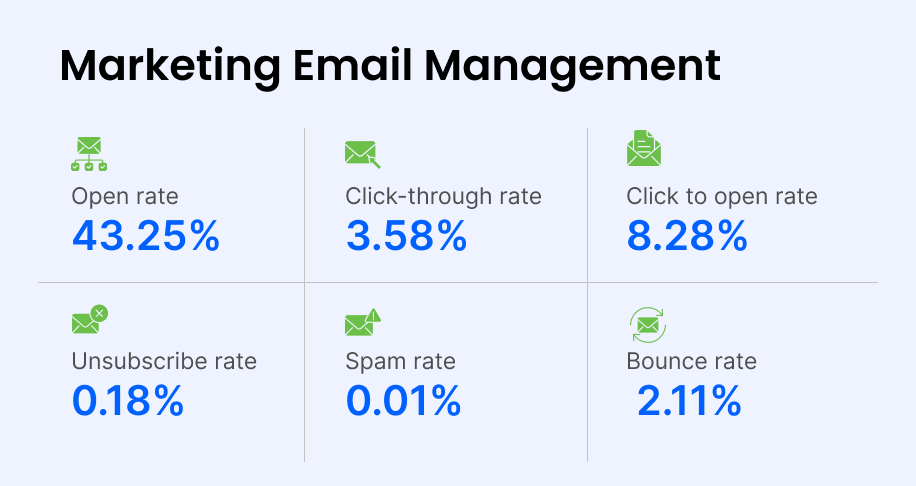
GDPR Compliance and Data Management
Seers maintains customer data according to GDPR requirements, ensuring that all data is handled with the highest level of care. It also automates the process of deleting data once it is no longer needed, reducing the risk of non-compliance and data breaches.
GDPR compliance reduces their risk of data breaches by 25% and save an average of $3.86 million per breach
Clear Communication of Terms and Conditions
Seers ensure that your terms and conditions regarding data usage are communicated clearly to users, reinforcing your commitment to transparency and ethical marketing practices. 85% of consumers are more likely to trust brands that clearly communicate their terms and conditions
Final Thoughts
Maintaining leadership in digital marketing requires compliance as your secret weapon for success; it is not only about smart campaigns and appealing slogans. By adopting these seven suggestions, you create a brand that customers respect and trust, rather than just checking legal boxes.
These measures are a ticket to a safer and more reputable company, from obtaining explicit consent to protecting data and maintaining your marketing procedures to the highest standards.
When Seers is on your side, compliance with complex regulations becomes simple and uncomplicated. As the digital world changes, compliance is becoming more than simply a requirement—it’s a competitive advantage. In the always shifting European market, secure your brand, build client loyalty, and watch your company grow.
Take Control of Your Digital Marketing Compliance
Digital marketing compliance can be overwhelming, but with Seers, it's simple.
- Stay compliant with GDPR and other regulations
- Manage consent easily with Seers’ tools
- Protect user data and enhance customer trust
- Automate compliance processes and avoid penalties
